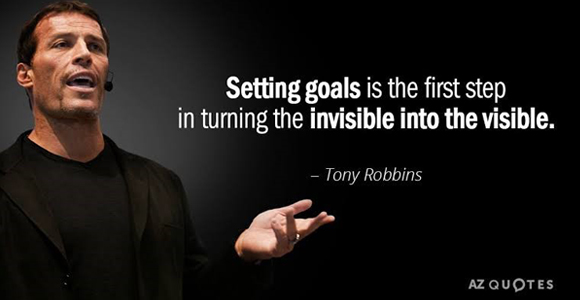New year, new goals – it’s almost become a cliché. Each year, many will make a laundry list of resolutions but more than 80% of those won’t make it to February. This dismal statistic has put goal-setting in a bad light, even when it’s actually a powerful skill to have. There’s a very real science behind it and, when done correctly, it plays a vital role in increasing efficacy and sustaining motivation.
Here are a few goal-setting tips to help make the right resolutions that won’t just vanish in thin air:
- Visualize (and then write it down!)
I’m sure you’ve heard it before – writing goals down significantly increases the chances of achieving it. A visualized and written-down goal is 30x more likely to succeed than those who only have the goals imagined in their head. Why is this? Neuroscience points it to the biological phenomenon of encoding, where the things we perceive travel to the hippocampus where they are analyzed and stored long-term – writing things down and visual cues help that encoding process. Another factor is that making goals “tangible” increases the accountability and commitment in fulfilling them.
- Be specific.
The first letter in the acronym SMART, which is one of the most popular frameworks established in goal-setting, is S for Specific. A goal that is too broad or ambiguous can cause you to lose focus and, subsequently, distract you from actually accomplishing it. For instance, a goal like “Lose weight” should be supported by details and action steps like “Lose 20 pounds in the first quarter of the year, by riding my bike 30 minutes a week, going to the gym 3x a week, and eating five servings of fruit and greens a day.” By listing down a set of actionable milestones that back your goal, you’re giving yourself concrete direction and allowing periodic checks to see if you’re on the right track.
- Set an upper bound.
I came across this concept while reading some articles about long-term growth online. Instead of saying, “I aim to do at least 10 sales calls each day.” – you say, “I aim to do 10 sales calls but not more than 20.” At first glance, it seemed counterproductive; but as I studied it for longer, I began to understand why it’s actually effective. Oftentimes, when we set objectives, we state the lower spectrum, not realizing that, by doing so, our brains are conditioned to focus on and merely “hit” the minimum target. Especially in the beginning of working towards a goal, the showing up is more important than succeeding. By setting an upper limit, it becomes easier start a goal stick to it.
- Stay flexible.
One of the most common reasons why people don’t achieve their goals is because they get easily discouraged at the first hindrance or obstacle. It is important to understand that setbacks are part of the journey. At some point, things are not going to go as planned. Review and adjust goals accordingly. Some unexpected things may force you to revise, recalibrate or reform your process – but the important thing is that you’re moving forward.
- Make joy your ultimate goal.
If all your goals do is incite anxiety and stress, then they are not (and will not be) effective goals. Don’t forget that goals should be about what’s valuable to you, what motivates you. In order to maximize the likelihood of success, they should be relevant to your high priorities in life. They should be about joy, too. When we learn to incorporate happiness, passion, and purpose in our objectives, we learn to love both the process and the endgame, both the journey and the destination.

What are your goals for 2020? Have you started mapping out the direction for your business? FGC+ is an outsourcing services provider that has helped many business owners in achieving their goals by providing strategic consulting and world-class remote staff. Schedule a call with us today!


